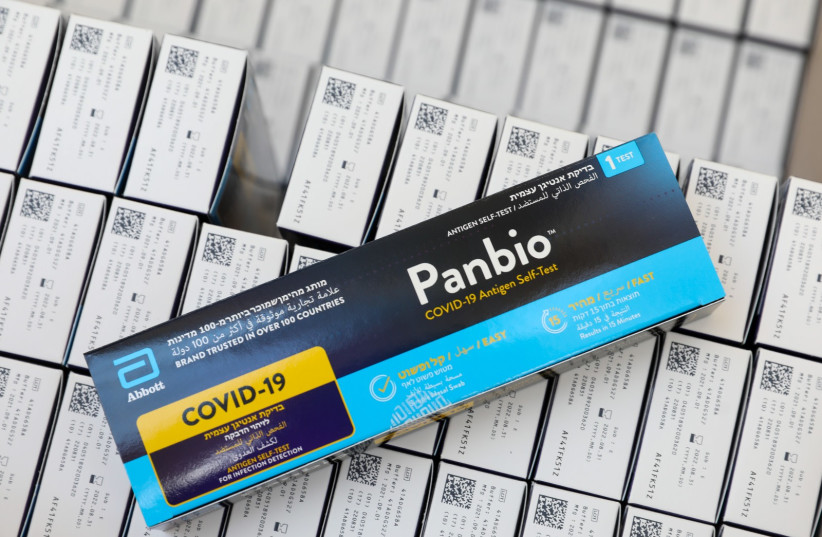The quarantine for individuals infected with the coronavirus will be shortened from seven to five days, Prime Minister Naftali Bennett and Health Minister Nitzan Horowitz said Monday.
In addition, a negative at-home antigen test will be sufficient to leave isolation instead of a doctor’s note, which has been required so far, they said.
“The State of Israel is now facing the highest morbidity of the Omicron wave,” Bennett said. “Therefore, we are seeing many verified cases and many people in quarantine, and this is placing heavy pressure on the economy.”
“This decision will enable us to continue safeguarding public health on the one hand and to keep the economy going at this time on the other, even though it is difficult, so that we can get through this wave safely,” he said.
The new rules come into effect Wednesday.

Under the new outline, individuals over 60 who are fully vaccinated or recovered will undergo a PCR test when they are exposed to a verified case or experience symptoms. If negative, they will be exempt from quarantine. If positive, they will need to enter quarantine for five days.
If they do not have any symptoms, they will be able to leave quarantine after performing an at-home test on the fifth day, as long as the test comes out negative. A doctor’s note will not be required to be released from isolation.
The same rules apply for fully vaccinated or recovered Israelis under 60. The only difference is that instead of a PCR, they are required to undergo an antigen test at home or at a testing station.
Unvaccinated individuals over 60 who have symptoms or have been exposed to a verified case must first undergo a PCR and quarantine for five days, whether they are negative or positive. If they are found negative, they will need a second PCR after five days to be released from isolation. If the result shows they are infected, they can undergo an antigen test at home, as long as they do not have any symptoms.
Those under 60 are released after five days with a negative antigen test at a testing station, provided they do not have any symptoms.
Any person of any age who still tests positive after five days will need to repeat the test after seven days.
“We have decided to shorten the isolation from seven to five days because we found that the majority of infections from verified cases happen within five days,” coronavirus commissioner Salman Zarka said in a press briefing.
The move followed an in-depth study of data from Israel and abroad showing that most of the infections from a positive individual happen within the first three days and 85% within the first five, he said.
The Health Ministry also was examining the possibility of allowing healthcare staff and other emergency personnel to continue working in certain conditions even when infected, Zarka said.
The high number of medical staff in quarantine – more than 7,700, the Healthy Ministry reported Sunday night – has been creating severe problems in the hospital system, already strained by a growing number of hospitalized patients both due to COVID and the flu.
As of Sunday night, there were 446 patients in serious condition, 250 more than a week earlier.
On Monday, due to technical problems, the Health Ministry did not release an update about pandemic trends.
The ministry had looked into the question of how many patients in the health system were hospitalized and also have the virus, as opposed to how many are hospitalized because of the virus, Zarka said. It found that 78% of patients in serious or critical condition or were ventilated were there because of COVID-19.
